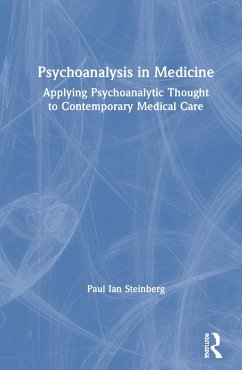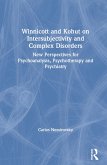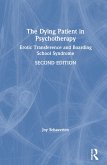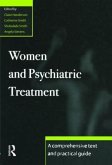"Finally!!! After 125 years of the great divide between the mind and body, a book that gets psychoanalysis up off the couch and into every day clinical practice. Combining his formal training as a psychoanalyst with his wealth of hands-on clinical experience and his years of practice as a psychiatrist in hospitals and outpatient clinics and as a dedicated teacher to medical learners, Dr. Steinberg illuminates the psychological factors that shape and influence patient presentations. Through a variety of eloquently described case discussions, interwoven with theoretical constructs, we are invited into the world of the unconscious, as a way of understanding that symptoms and behaviors not otherwise explained by medical models can be solutions to intrapsychic conflict. Dr. Steinberg shows us that, by integrating an understanding of the patient's psychological make-up, we as clinicians can examine and manage the frustrations we may feel, and the therapeutic nihilism we may encounter, when treating people who have complex and unsolvable problems. Moreover, this book illustrates how we can achieve more satisfactory and effective clinical practices, and how we can protect our patients from the pitfalls of overmedicalizing symptoms. This book will have a profound influence on how we think about our patients and will enrich our approaches to helping people with medical and psychiatric disorders or ill-defined symptoms. Dr. Steinberg is the consummate scholar, and most of all, he teaches us to be curious minded and compassionate in our work with people who struggle in their lives."
David Kenneth Cochrane, MD, FRCPC, medical director General Psychiatry Services, North Bay Regional Health Centre, assistant professor University of Ottawa, assistant professor Northern Ontario School of Medicine
"Drawing on his in-depth knowledge of contemporary psychoanalytic theories and his extensive experience as a consultation-liaison psychiatrist, Dr. Steinberg provides a clear description of how early attachment experiences with caregivers become represented in children's minds as unconscious images of self and others that influence their sense of self and the quality of their relationships throughout life. Adverse childhood experiences not only affect personality functioning, but also render individuals more susceptible to medical and psychiatric disorders. Dr. Steinberg applies these concepts to patients often described as "difficult" to manage by their family doctors or hospital specialists, making excellent use of selected case histories to illustrate the operation of defense mechanisms, as well as transference and countertransference phenomena. The book will be immensely useful to family physicians, medical and surgical specialists, and hospital-based psychiatrists."
Graeme J. Taylor, MD, FRCPC, MRCPsych, professor emeritus of Psychiatry, University of Toronto.
David Kenneth Cochrane, MD, FRCPC, medical director General Psychiatry Services, North Bay Regional Health Centre, assistant professor University of Ottawa, assistant professor Northern Ontario School of Medicine
"Drawing on his in-depth knowledge of contemporary psychoanalytic theories and his extensive experience as a consultation-liaison psychiatrist, Dr. Steinberg provides a clear description of how early attachment experiences with caregivers become represented in children's minds as unconscious images of self and others that influence their sense of self and the quality of their relationships throughout life. Adverse childhood experiences not only affect personality functioning, but also render individuals more susceptible to medical and psychiatric disorders. Dr. Steinberg applies these concepts to patients often described as "difficult" to manage by their family doctors or hospital specialists, making excellent use of selected case histories to illustrate the operation of defense mechanisms, as well as transference and countertransference phenomena. The book will be immensely useful to family physicians, medical and surgical specialists, and hospital-based psychiatrists."
Graeme J. Taylor, MD, FRCPC, MRCPsych, professor emeritus of Psychiatry, University of Toronto.









